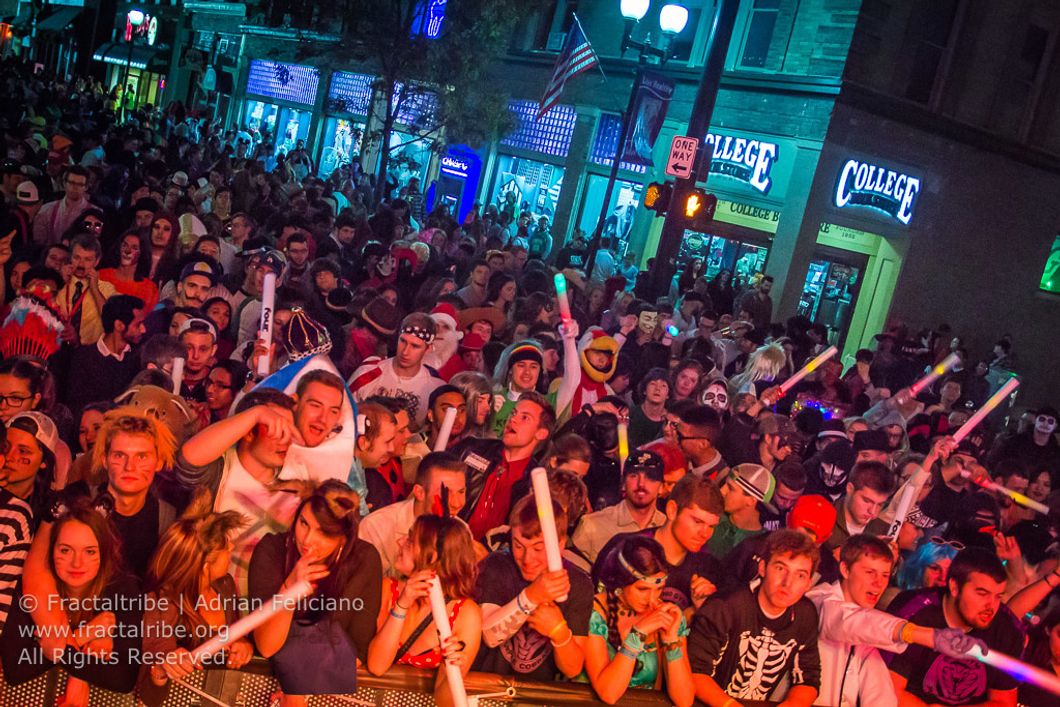Blacking out after a night of relentless binge drinking has become the regular social norm for a staggering amount of college students. Let's face it; high schoolers aspire to attend schools with a renowned reputation for having a wild party culture, and are excited to experience what the media glamorizes as the "ideal college experience." This misleading perception encourages many to justify their dangerous behavior with the belief that they are invincible to the harsh realities of alcohol abuse.
The mindset that we cannot spend time with our friends without depending on alcohol as a crutch has become widespread among millennials; as if our true, sober selves are not enough for those we call our 'friends,' and as if we cannot enjoy a social environment unless we are drunk. It shocks me to hear that eighth, ninth, and tenth graders party in their parent's basement every weekend, but it is certainly not unusual.
We seem desperate to "grow up," and witnessing those we admire and look up to incorporating any scale of alcohol, whether abusive or not, engrains the idea into our minds that drinking makes us mature. Ask yourself, what if your younger sibling knew what you do every weekend? What if they grew up to follow in your footsteps?
Let me remind you that the sober, authentic you is absolutely enough, and if you are insecure about what makes you authentic, or fear the reaction of your friends, then you are probably with the wrong friends because you should not have to alter your personality in order to be accepted by anyone.
Science also proves that the younger you start drinking, the more likely you are to become an alcoholic; a terrifying disease that most underestimate and do not understand, yet no one is immune to. Alcoholism is a detrimental and heartbreaking weight on the shoulders of any family it impacts and speaking from personal experience, I would never wish it on anyone.
Truly I would sacrifice anything to erase the memories of a childhood plagued by the constant fear of my alcoholic parent. It may just be one night or just one more drink, but with each drink you increase your chance of becoming dependent on alcohol, beginning the endless tormenting cycle that never results in anything good for those it involves.
Despite arguments from underaged drinkers who insist that the 21 law should be lowered back to the legal age of 18, I believe that science proves otherwise and reminds us that the government raised the drinking law in order to protect our health from the plethora dangerous side effects of alcohol.
The undeniable fact is that alcohol wears away at the brain's grey matter which is responsible for many basic functions that contribute to human growth and emotional development, especially in the crucial years of brain development, which typically ends in one's mid-twenties. In addition to brain shrinkage, many illnesses and side effects can result from or be increased in likelihood by alcohol abuse such as at least seven different types of cancer, dementia, immune system dysfunction, liver disease, and many more. Your health is not worth risking for the night of abusive drinking that you aim to forget. Remember that you only have one body, and the damage you inflict upon it is often irreversible.
Alcohol impairs your ability to be there for those you love in case of an emergency. Imagine getting a call from your best friend or family member who needed your help, and you were unable to get in a car, or were not sober enough to even think coherently? I cannot imagine the guilt I would feel if I was too drunk to be able to be there for someone who called. I would much rather miss out on a night of binge drinking than be unable to do anything to aid someone I love if they are suffering or in trouble.
So next time you plan a night out to go binge drinking with your friends, think about how it could affect your future, and ask yourself if that one night full of memories that you may or may not remember the next morning is worth it.



















